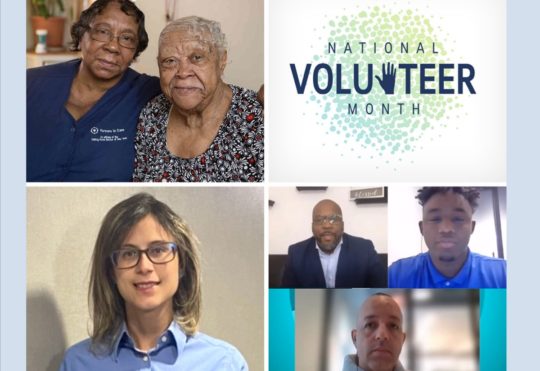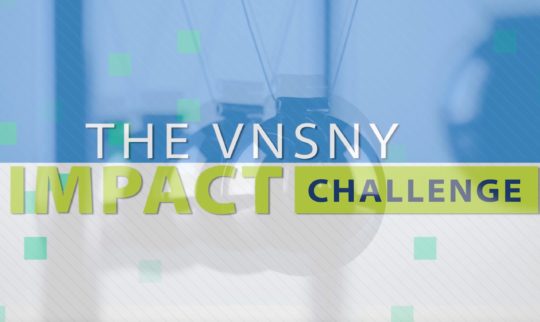A Former Army Medic Supports Veterans at the End of Life: Spotlight on Sung Yoon, VNSNY Hospice Veterans Liaison
Note: All VNSNY staff who have served the U.S. through active and/or reserve duty, in any capacity, in the Army, Navy, Air Force, Marine Corps, Coast Guard, or National Guard, are invited to a Veterans Day Breakfast on Thursday, November 15th, from 8:00 to 10:00 a.m. at VNSNY Headquarters at 107 East 70th Street. Click here to RSVP for the breakfast.
The following profile of Hospice Veterans Liaison Sung Yoon was originally published last June. Frontline VNSNY is reposting it in recognition of Veterans Day 2018. Since this article’s original publication, Sung, who saw active duty in Afghanistan, has been selected for the 2018-2019 cohort of the We Are All New York Fellowship—a year-long leadership development program sponsored by the Jewish Community Relations Council of New York, that connects professionals with fellow leaders and experts in the non-profit, faith, government and community arenas.
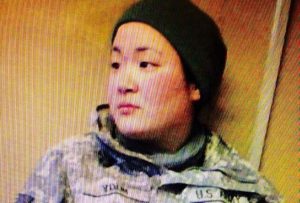 For Sung Yoon, VNSNY Hospice’s new Veterans Liaison, the road to her current job began as a high school student in Newark, Delaware. “When 9/11 happened, I was really moved by people’s response,” she says. “I felt that I also wanted to make a difference through personal service.” After graduating, Sung enlisted in the US Army as a medic at age 17. She completed Basic Training and was certified as an Emergency Medical Technician (EMT). Sung was assigned first to the emergency department at the Walter Reed Army Hospital in Washington, D.C., and then to South Korea, where she could apply her Korean language skills. In addition to her duties there, she taught English at an elementary school and volunteered at an orphanage.
For Sung Yoon, VNSNY Hospice’s new Veterans Liaison, the road to her current job began as a high school student in Newark, Delaware. “When 9/11 happened, I was really moved by people’s response,” she says. “I felt that I also wanted to make a difference through personal service.” After graduating, Sung enlisted in the US Army as a medic at age 17. She completed Basic Training and was certified as an Emergency Medical Technician (EMT). Sung was assigned first to the emergency department at the Walter Reed Army Hospital in Washington, D.C., and then to South Korea, where she could apply her Korean language skills. In addition to her duties there, she taught English at an elementary school and volunteered at an orphanage.
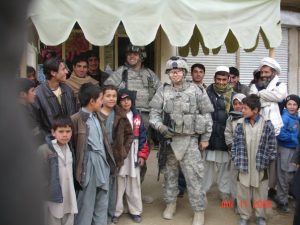 When her term was up, Sung returned to civilian life, only to be called six months later for active duty in Afghanistan. During her time in Afghanistan, from August 2008 to August 2009, Sung’s unit performed a multi-faceted role—providing medical care for soldiers under battlefield conditions, offering medical assistance and humanitarian support to local villagers, and gathering information about Afghan culture and the needs of civilians. Because Islamic law prohibits male medics from treating female patients, Sung had much interaction with local women and their children. By assisting civilians who had no other access to medical care, Sung’s unit helped foster a bond of trust between the military and the Afghan people. Her primary role, though, was tending to US soldiers wounded in combat. She vividly recalls providing emergency treatment for a soldier injured by shrapnel from a suicide bomb—she treated him, triaged his case, and had him evacuated within minutes. Thankfully, he recovered completely from his wounds.
When her term was up, Sung returned to civilian life, only to be called six months later for active duty in Afghanistan. During her time in Afghanistan, from August 2008 to August 2009, Sung’s unit performed a multi-faceted role—providing medical care for soldiers under battlefield conditions, offering medical assistance and humanitarian support to local villagers, and gathering information about Afghan culture and the needs of civilians. Because Islamic law prohibits male medics from treating female patients, Sung had much interaction with local women and their children. By assisting civilians who had no other access to medical care, Sung’s unit helped foster a bond of trust between the military and the Afghan people. Her primary role, though, was tending to US soldiers wounded in combat. She vividly recalls providing emergency treatment for a soldier injured by shrapnel from a suicide bomb—she treated him, triaged his case, and had him evacuated within minutes. Thankfully, he recovered completely from his wounds.
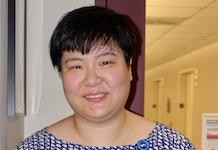 After Sung left the army in 2009, she received her bachelor’s degree in psychology from Columbia University and held jobs in marketing. But her desire to serve people in need and to apply the skills she’d developed in the military convinced her to change careers, and this past January she joined the VNSNY Veterans’ Hospice program, working with hospice patients in the Bronx.
After Sung left the army in 2009, she received her bachelor’s degree in psychology from Columbia University and held jobs in marketing. But her desire to serve people in need and to apply the skills she’d developed in the military convinced her to change careers, and this past January she joined the VNSNY Veterans’ Hospice program, working with hospice patients in the Bronx.
Sung was initially drawn to hospice, she says, by the experience of watching her grandfather’s time in hospice care. “I learned that everyone deserves the right to face death on their own terms, and to be comfortable until the moment they pass.” Having visited veterans at various VA facilities, Sung decided that VNSNY’s home-based model was more appropriate for veterans’ special end-of-life needs. “Many of them have been in and out of institutions for years,” she notes. “Their goal is to get back home, and to live their remaining time as independently as possible.”
Sung has also been impressed by the support provided by VNSNY’s interdisciplinary teams—social workers, hospice nurses, spiritual counselors, and others—that provide hospice care in the home: “It’s a big collaboration,” she says. She remains involved for the patient’s entire time in hospice, assisting veterans and their families in navigating the complex VA healthcare system, maximizing their benefits, planning for the medical and spiritual aspects of the end of life, and helping to ensure that the patient’s wishes are honored. “With the invaluable guidance of Joe Vitti, who supervises the veterans program, I’ve been able to help veterans from World War II right up to current conflicts transition from a critical care or hospital setting to their home.”
“Sung’s experience as a young female medic and her understanding of the mission, goals and value of the hospice program are unique,” says Joe, who is a veteran himself. “Veterans are much more likely to share their concerns with someone like Sung who has ‘walked in their boots.’ Plus, combat vets, and all vets, truly appreciate medics.”
Sung agrees, adding, “As soon as they find out I served, they start using military acronyms and we talk about our experiences.”
Joe recently accompanied Sung when she visited a 74-year-old hospice patient who was a Vietnam vet. Like Sung, he had served as a medic. The two medics hit it off immediately, recalls Joe. They had an “unspoken, almost telepathic bond,” he says.
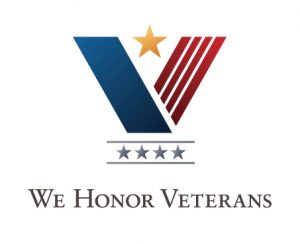 With its Level Four rating from the veterans’ group We Honor Veterans (the highest recognition the group bestows), VNSNY Hospice’s veterans program has established itself as a leader in providing end-of-life care to those who have served the U.S. in combat. For Sung, one of the program’s most moving experiences is the “bedside recognition” ceremony, where she and Joe and the veteran’s family members honor the vet for his or her service and present a certificate and other items, including blankets made by VNSNY volunteers—many of whom are military spouses and/or parents. For Sung, seeing the faces of these vets, some of whom feel that their sacrifices have gone unnoticed in the past, is especially meaningful. “Receiving that heartfelt appreciation makes the work I do worthwhile,” she says.
With its Level Four rating from the veterans’ group We Honor Veterans (the highest recognition the group bestows), VNSNY Hospice’s veterans program has established itself as a leader in providing end-of-life care to those who have served the U.S. in combat. For Sung, one of the program’s most moving experiences is the “bedside recognition” ceremony, where she and Joe and the veteran’s family members honor the vet for his or her service and present a certificate and other items, including blankets made by VNSNY volunteers—many of whom are military spouses and/or parents. For Sung, seeing the faces of these vets, some of whom feel that their sacrifices have gone unnoticed in the past, is especially meaningful. “Receiving that heartfelt appreciation makes the work I do worthwhile,” she says.
